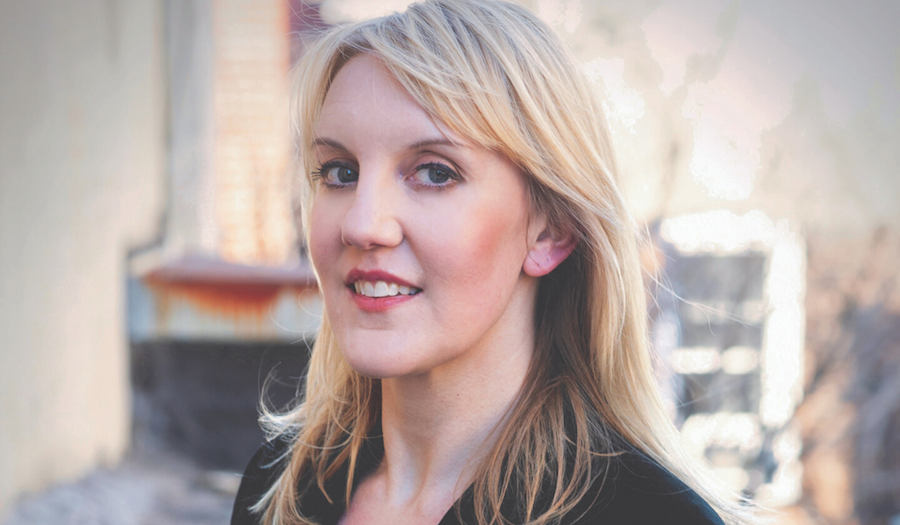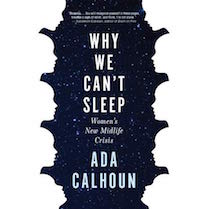Gen X Author Ada Calhoun Discusses the Unique Challenges Facing Her Peers

Ada Calhoun couldn’t understand why she was experiencing a “midlife crisis.” At the time, she was married with children and had a good career. So why did she feel so miserable? Apparently, she wasn’t alone. She soon discovered that many other Gen X women were going through similar experiences.
Calhoun decided to investigate and looked into housing costs, HR trends, credit card debt averages, and divorce data. At every turn, she saw a pattern: sandwiched between the Boomers and the Millennials, Gen X women were facing new problems as they entered middle age, problems that were being largely overlooked. Calhoun traveled the country speaking to fellow Gen X’rs about their experiences as the generation raised to “have it all.”
We spoke with Calhoun about her interesting findings and possible solutions for those feeling like they’re in an abyss.
1. How/why is midlife crisis for Generation X’rs different from other generations?
When our mothers and grandmothers were in their forties and fifties, they were likely to be empty-nesters; the average age for having a first child in 1970 was 21. If a woman worked—and as recently as 1950 only 34% of women did—her job was likely to be 9-5. Women now are starting families later and working longer hours, which means that a typical women in her forties and fifties now could be working full-time, plus answering emails on nights and weekends, taking care of young kids and/or their aging parents (who are living longer), trying to stay in shape, and being told she should “lean in;” all while going through perimenopause, which no one talks about and which can last for ten years. Add that to the financial realities for this generation: e.g., healthcare, housing, and education are far more costly than they were for past generations, wages have stagnated, the housing crisis hit us hardest, managerial jobs are going away just as we’re aging into them. Is it any wonder a lot of women right now are buying stacks of self-help books, downloading meditation apps, and drinking a lot of wine?
2. Yours is the generation of “you can have it all.” Is this actually true?
What I think happened to women in this generation was when we were girls we were told we could “be anything, even president!” And as I was interviewing all these women around the country I heard from them that the idea that they could do anything somehow morphed somehow into a directive that they must do everything—and do it all effortlessly. In middle age, they are likely to find that they haven’t lived up to this fantasy they had for themselves, epitomized by the crimes against humanity that were those Enjoli perfume ads about bringing home the bacon and frying it up in a pan. If women bought into that idea (as many of us did), they may have a family but not a career or vice versa and then feel like they are not doing enough. Even a lot of women I talked to who were doing a stressful full-time job and a lot of caregiving (the classic definition of “it all”) felt like they had failed in some way—maybe they had both work and family but they weren’t in good physical shape, their kids weren’t getting good grades, they worked all the time but still couldn’t afford a nice vacation, or they were just very, very tired.
3. Is there a way to reframe the way you think about/deal with stress?
In interviewing these women, I learned that a lot of the stress seemed to be coming out of shame—they felt they should be more successful, maybe, but also more grateful. They would say, “I’m so lucky, I have no right to complain.” And then they would describe what they expected from themselves and what they were dealing with. The responsibilities and pressures would be massive, but the thing that seemed to be pushing them over the edge into despair was this idea that they were whining if they admitted how hard it was. They would dismiss what they were feeling by making a joke about #FirstWorldProblems. And they would tell me that they knew if only they could do enough yoga or find the right herbal tea or learn about CBD oil, the feeling of unease would go away. This book tries to show that no, if you are stressed out it isn’t necessarily that you did something wrong or you haven’t made the right chore chart—maybe the deck is stacked against you.
4. Who are some of the women you talk to in the book, and what do we learn from them?
I talked to a couple of hundred women around the country who could be considered middle-class and middle-age but who in every other way—racially, regionally, politically, religiously—are a diverse group. I learned that we get pitted against one another all the time—think of the ginned-up “mommy wars” or debates over who’s a feminist—but the truth is we have these very serious, very fundamental things in common. I think it’s only by joining forces and being honest with one another that things could change for us.
5. What message do you hope all women will get from reading your book?
I’ve been hearing from so many women since the book came out that it made them feel a lot less alone—which is funny because that’s exactly how doing these interviews and writing this book made me feel! I’ve also heard from readers that the book inspired them to start clubs with other women, and that makes me profoundly happy.
Click here to order “Why We Can’t Sleep: Women’s New Midlife Crisis.”

This Q&A was featured in the January 26th edition of The Sunday Paper. The Sunday Paper inspires hearts and minds to rise above the noise. To get The Sunday Paper delivered to your inbox each Sunday morning for free, click here to subscribe.


